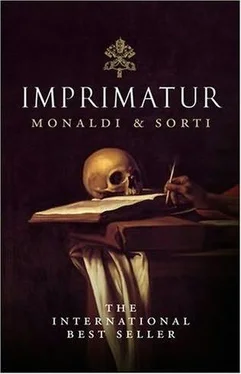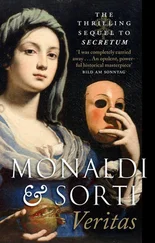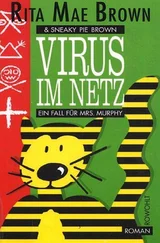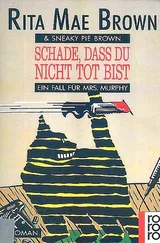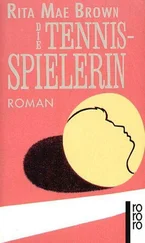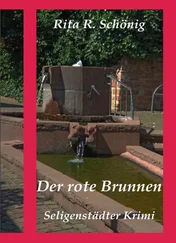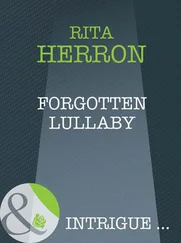Rita Monaldi - Imprimatur
Здесь есть возможность читать онлайн «Rita Monaldi - Imprimatur» весь текст электронной книги совершенно бесплатно (целиком полную версию без сокращений). В некоторых случаях можно слушать аудио, скачать через торрент в формате fb2 и присутствует краткое содержание. Жанр: Исторический детектив, на английском языке. Описание произведения, (предисловие) а так же отзывы посетителей доступны на портале библиотеки ЛибКат.
- Название:Imprimatur
- Автор:
- Жанр:
- Год:неизвестен
- ISBN:нет данных
- Рейтинг книги:5 / 5. Голосов: 1
-
Избранное:Добавить в избранное
- Отзывы:
-
Ваша оценка:
- 100
- 1
- 2
- 3
- 4
- 5
Imprimatur: краткое содержание, описание и аннотация
Предлагаем к чтению аннотацию, описание, краткое содержание или предисловие (зависит от того, что написал сам автор книги «Imprimatur»). Если вы не нашли необходимую информацию о книге — напишите в комментариях, мы постараемся отыскать её.
Imprimatur — читать онлайн бесплатно полную книгу (весь текст) целиком
Ниже представлен текст книги, разбитый по страницам. Система сохранения места последней прочитанной страницы, позволяет с удобством читать онлайн бесплатно книгу «Imprimatur», без необходимости каждый раз заново искать на чём Вы остановились. Поставьте закладку, и сможете в любой момент перейти на страницу, на которой закончили чтение.
Интервал:
Закладка:
"What has come over you, Pompeo?" I asked, jumping to my feet and fearing that he might be unwell.
"He has done it, the wretch! He has done it at last!" he panted, staring at the horizon beyond my head in cold fury.
It had all started almost thirty years ago. It was then, Dulcibeni recounted, that the Odescalchi family had besmirched itself with the most infamous of crimes: aiding heretics.
It was about 1660. At that time, William of Orange was still a child. The House of Orange was, as ever, short of money. To give an idea of what that meant, William's mother and grandmother had pawned all the family jewels.
For Holland, there were portents of tremendous wars in the European theatre; and indeed, these were not long in breaking out: first, against England, then France. Fighting these wars cost money: huge sums of money.
After a series of highly secret overtures, of which not even Dulcibeni knew the details, the House of Orange turned to the Odescalchi. They were the most solvent moneylenders in Italy, nor did they draw back from the transaction.
Thus, the wars of heretical Holland were financed by the Catholic family of Cardinal Odescalchi, the future Pope Innocent XI.
The whole loan operation was, of course, conducted shrewdly and with all possible discretion. Cardinal Benedetto Odescalchi lived in Rome; his brother, who was the principal of the family business, resided in Como. The money for the Orange family was, however, sent to Venice through two trusted men of straw, so that it would in no way be possible to retrace it to the family of Innocent XI. The loans were, moreover, not addressed directly to members of the House of Orange, but to secret intermediaries: Admiral Jean Neufville, the financier Jan Deutz, the merchants Bartolotti, and to Jan Baptista Hochepied, Amsterdam councillor.
From the latter, this money was then redirected to the House of Orange, in order to finance the wars against Louis XIV
"And what about you?" I interrupted.
"I went back and forth to Holland on behalf of the Odescalchi; I made sure that the letters of exchange arrived at their destination and were duly encashed, and that the relevant receipt was obtained. Moreover, I made sure that all took place far from prying eyes."
"In other words, the money of Pope Innocent XI was used to finance the heretics' landing in England!" I concluded, utterly shocked.
"More or less. The Odescalchi, however, only lent money to the Dutch until some fifteen years ago, while William has only now landed in England."
"So, what happened then?"
Something bizarre had then taken place, explained Dulcibeni. In 1673, Carlo Odescalchi, the brother of the future Pope, had died. Thus, Cardinal Odescalchi was no longer able to follow the family business from Rome and decided to suspend the loan to the Dutch. The game had become too dangerous and the pious Cardinal could no longer risk discovery. His image must remain immaculate. He was far-sighted: within three years, the conclave took place which was to make him Pope.
"But he had lent money to the heretics!" I exclaimed, scandalised.
"Listen to the rest of it."
With time, the debt of the House of Orange to the Odescalchi had increased beyond all measure, to over five hundred and fifty thousand scudi. Now that Benedetto had been elected Pope, how was all that money to be recouped? In the event of insolvency, the initial agreement stipulated that the Odescalchi would be able to lay claim to William's private property. Now, however, Benedetto Odescalchi, having become Pontiff, was in the public eye: he could not impound the property of a heretic prince, for that would also reveal the loans to that prince. And that would lead to a dreadful scandal. It is true that in the meantime Benedetto had made an apparent donation of all his goods to his nephew Livio, but in reality it was well known that it was still he who continued obstinately to control everything.
Besides, there was another problem. William was still short of money, since his Dutch creditors (in other words, the wealthy families of Amsterdam) had tightened their purse-strings. Thus, Innocent XI was in danger of never seeing his money again.
That was why, said Dulcibeni, Innocent XI had always been so hostile to Louis XIV: the Most Christian King of France was the only one who could bar the way to William's mounting the throne of England. Only Louis XIV came between Innocent XI and his money.
The Odescalchi had in the meantime succeeded in keeping all this secret. In 1676, however, a little before the conclave, the Huygens incident took place: the right-hand man of the slave merchant Francesco Feroni (who also had dealings with the Odescalchi) became infatuated with Pompeo Dulcibeni's daughter by a Turkish slave and-with the support of Feroni-wanted to take possession of her. Dulcibeni could not oppose this legally, since he had not married the child's mother. So he let the Odescalchi understand that, if Huygens and Feroni did not renounce their claims, indiscretions might circulate which would be somewhat dangerous for Cardinal Benedetto: a matter of loans with interest, granted to Dutch heretics… And Cardinal Odescalchi could then bid the conclave adieu…
The rest, I already knew: the maiden was abducted and Dulcibeni defenestrated, escaping death only by a miracle. Pompeo had to go into hiding, while Benedetto Odescalchi was elected Pope.
"Until now, the Pontiff will not have been able to lay his hands upon the money loaned to William of Orange. I am quite sure of that; I know how these matters are managed. Nevertheless, that will all now be settled," Dulcibeni concluded.
"Why is that?"
"It is quite clear: now William will become King of England and he will somehow manage to repay his debts to the Pope."
I fell silent. I was confused and felt lost.
"So that was what lay behind your plans: the visits to Tiracorda, the experiments on the island… Abbot Melani was right: you were not motivated solely by your daughter's abduction. It was as though you were acting to punish the Pope-I do not know how to put this-for betraying…"
"For betraying religion, precisely that. For lucre, he bartered the honour of the Church and of Christendom. Now, never forget that disease of the body is nothing compared to that of the soul. That is the true pestilence."
"Yet, you wanted the ruin of all Christendom: that was why you chose to infect the Pope during the siege of Vienna."
"The siege of Vienna… There is something else that you should know; and it concerns not only the gold of the Odescalchi but the Emperor too."
"The Emperor?" I exclaimed.
"The ploy was straightforward, and this time, too, it was conducted in great secrecy. In order to finance the war against the Turks, the House of Habsburg had been subsidised from the coffers of the Apostolic Chamber. At the same time, however, the Emperor contracted a private loan with the Odescalchi. In surety, the Pope's family received the quicksilver extracted from the imperial mines."
"And what did the Odescalchi do with that quicksilver?"
"That is simple. They resold it to the Dutch heretics; to be quite precise, to the Protestant banker Jan Deutz."
"But then Vienna owes its salvation to the heretics!"
"In a sense, that is true. Nevertheless, the city was saved above all by the money of the Odescalchi. And you may be certain that they will obtain a return of the favour which they did the Emperor; and here, I am not speaking only of money."
"What do you mean?"
"In time, the Emperor will surely grant the Pope, or his nephew and sole heir, Livio, some great political favour. Wait a few years, and you will see."
September 1699
I am now closing this memoir. As I write, eleven years have passed since William of Orange's landing in England. The heretical sovereign still reigns there, and his reign is a successful one: the honour of religion and of the English Catholics was sold by Innocent XI for mere lucre.
Читать дальшеИнтервал:
Закладка:
Похожие книги на «Imprimatur»
Представляем Вашему вниманию похожие книги на «Imprimatur» списком для выбора. Мы отобрали схожую по названию и смыслу литературу в надежде предоставить читателям больше вариантов отыскать новые, интересные, ещё непрочитанные произведения.
Обсуждение, отзывы о книге «Imprimatur» и просто собственные мнения читателей. Оставьте ваши комментарии, напишите, что Вы думаете о произведении, его смысле или главных героях. Укажите что конкретно понравилось, а что нет, и почему Вы так считаете.
